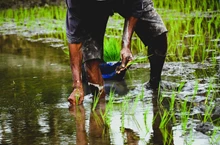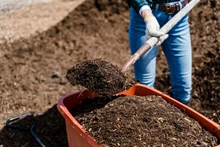
A recent report by the Centre for Science and Environment (CSE) titled "Market Access for Organic and Natural Produce" emphasizes the need to address the challenges of transitioning to organic farming and improving marketing and market access in order to promote the growth of organic farming in India.
While there has been a growing interest in organic farming in recent times, the report highlights the lack of efforts in creating better markets for organic produce. The webinar organized to release the report shed light on various case studies and strategies to overcome these challenges.
Amit Khurana, Director of the sustainable food systems program at CSE, emphasized the importance of developing better markets through a structured approach. While existing initiatives primarily focus on capacity-building and incentives to facilitate the transition to organic farming, there is a pressing need to establish robust market channels for organic produce.
The role of farmer-producer organizations (FPOs) in scaling up organic farming was discussed by G V Ramanjaneyulu, executive director of the Centre for Sustainable Agriculture. He highlighted the potential of federated FPOs in augmenting resources, leveraging technology, and establishing efficient supply chains that connect producers directly with consumers. Sahaja Aharam Producer Company Limited, a federation of 19 FPOs, was featured as a case study in the report, showcasing their successful efforts in supporting over 9,000 farmers in Andhra Pradesh and Telangana to adopt organic farming practices.
Akash Badave, CEO of Bhoomgadi Organic Farmers Produce Company, shared his experience of overcoming market-access limitations faced by organic farmers in the remote Dhantewade region of Chhattisgarh. He stressed the importance of consumer education and the need to work closely with consumers to change their attitudes and expectations towards organic products.
Dinesh Balam, state coordinator of Odisha Millet Mission, emphasized the need to address existing problems while redesigning the system. For instance, the mission empowered women's self-help groups to run post-harvesting centers to ensure proper cleaning of millets, addressing a common criticism that millets are not cleaned adequately. The report also highlighted the efforts of the Prakritik Kheti Khushhal Kisan Yojana (PK3Y) in Himachal Pradesh to simplify certifications through a self-assessed certification mechanism accessible through a web portal.
The report also featured a chapter on BigBasket, an online supermarket that sells products from various organic brands. The event saw participation from farmers, FPOs, and other stakeholders involved in organic farming, who stressed the importance of consumer awareness and the development of direct-to-consumer channels to ensure fair prices for farmers.
Thangapandian, who runs the NGO Farm India, emphasized the need for collective farming and enterprise skills among farmers to secure better prices for their produce, whether in organic or conventional farming. He highlighted the significance of farmers banding together as collectives, particularly for small-scale farmers.











